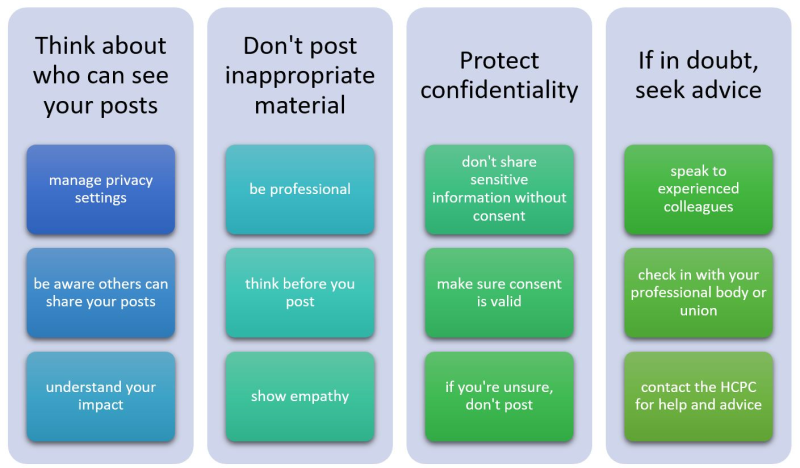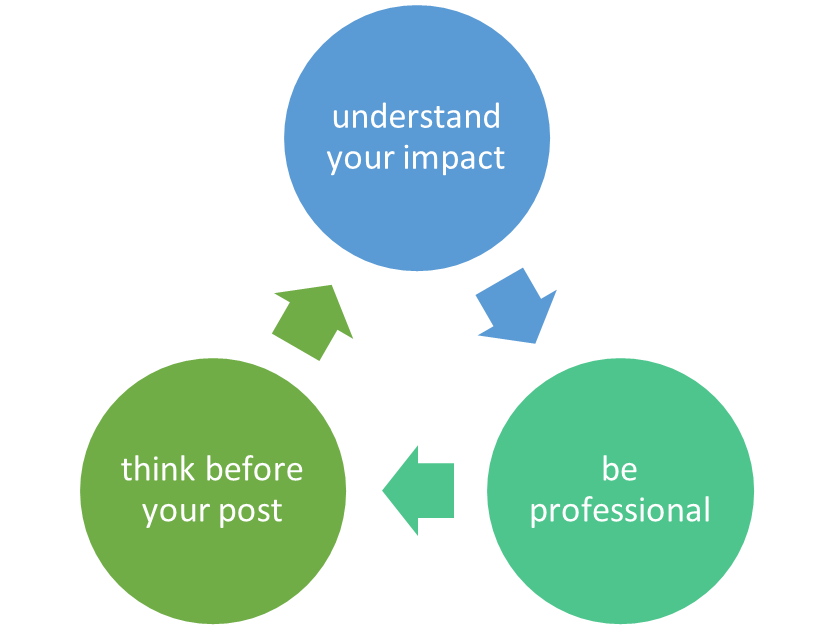Katherine Timms, Head of Policy and Standards shares important things to remember when posting on social media including being mindful of what you post as a registered professional and understanding your impact especially during the pandemic.
I have spoken before about the benefits of using social media and the opportunities it brings. These benefits have been more apparent than ever during the COVID-19 pandemic. However sadly so have the risks.
Benefits
I want to focus on the benefits first for two reasons. Firstly, we cannot shy away from new technologies and approaches to the delivery and development of healthcare. These serve to advance the services on offer to the public and often inform and improve healthcare professionals’ knowledge and skills. Secondly, and particularly in the current climate, social media provides a platform for closer engagement with and between isolated individuals, whether they are service users or professionals. This helps to facilitate the safe and effective delivery of care to all those who need it.
In my previous post, I set out some top tips for making sure social media posts reflect the professionalism service users experience when they see professionals face-to-face:

Why this is so important?
In the context of the current pandemic, there are three top tips that are of particular importance:

The reason these areas are so important is because unfortunately social media provides the ideal conditions for misinformation; false and often harmful information, albeit not shared with malicious intent. This information spreads swiftly on the internet and can have significant impacts on public health, particularly in the context of a global pandemic. Examples of misinformation in this context can include false information about the risks of various public health initiatives, such as the use of facemasks and having the COVID-19 vaccine.
Thinking before you post, and ensuring you know the evidence that underpins the content you are sharing, or the impact it might have, is vital in stopping the spread of misinformation and its harmful effects. You can also help others if you see them posting misinformation. You shouldn’t shame them, but you can work to understand why they might have posted the content they have and explain the damage it could cause.
Further advice and support
You can find further resources that might help you on our website:
- HCPC Social media guidance
- Social media blog post (2018)
- Social media blog post (2020)
- Information on communicating during the COVID-19 pandemic
Professional bodies can also give you guidance in this area. You can find contact details here.
Finally, your employer should have local policies and guidance in this regard too, so I would advise you to get in touch with them too.



